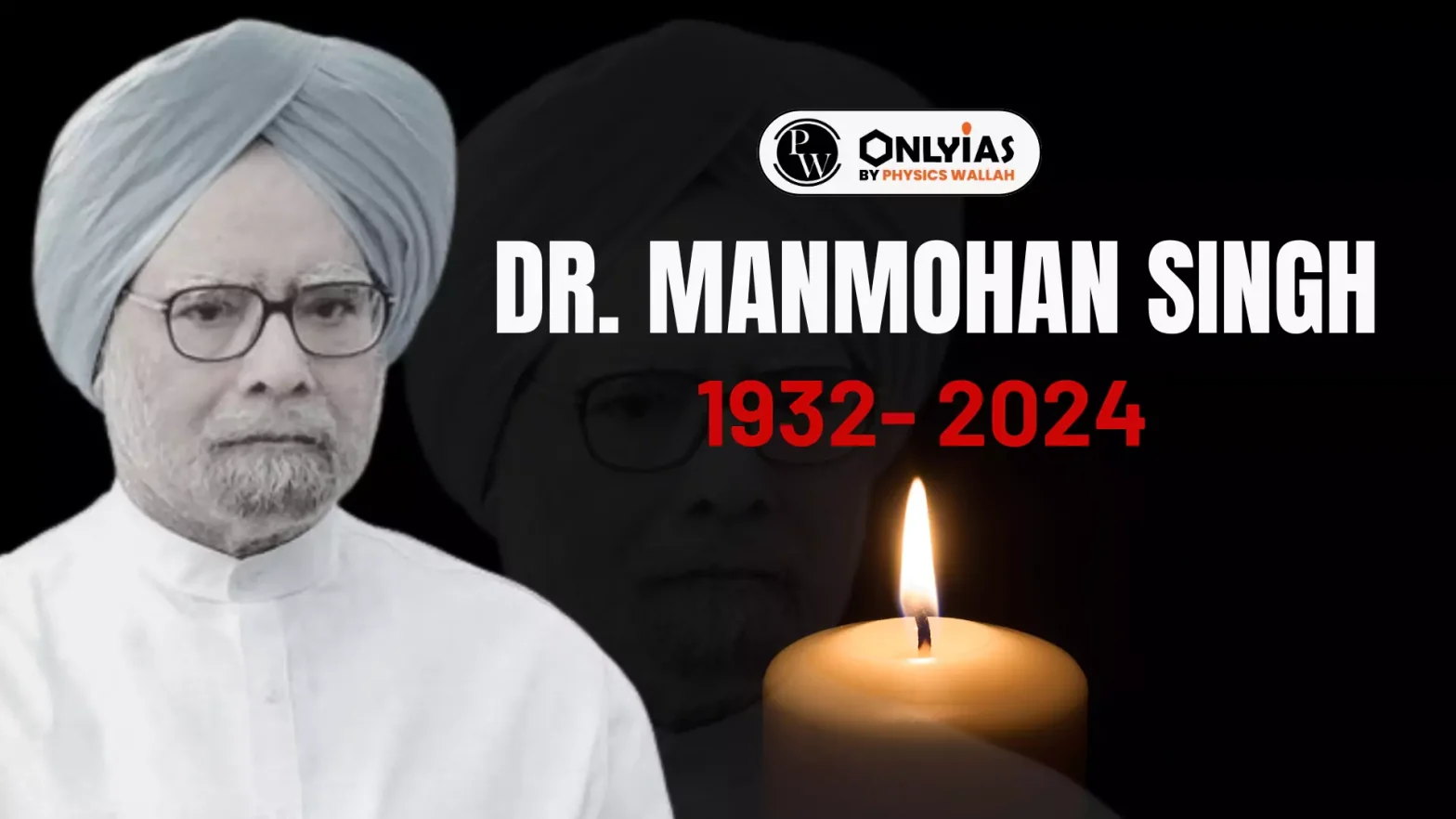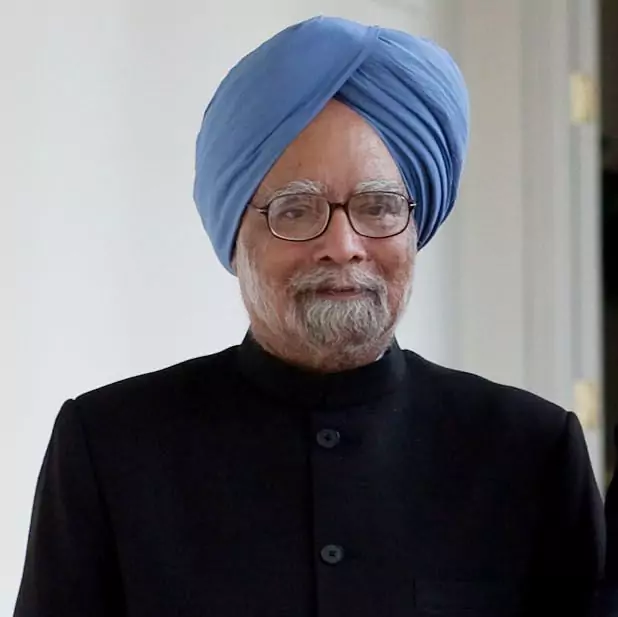Dr. Manmohan Singh, 13th Prime Minister of India, passed away on December 26, 2025, at the age of 92. Learn more about his legacy, biography, and his contributions.

Dr. Manmohan Singh was a renowned economist, statesman, and the 13th Prime Minister of India. Known for his humility and academic brilliance, he played a pivotal role in shaping India’s economic policies and steering the nation toward growth. Born on September 26, 1932, in Gah, Punjab (now in Pakistan), he rose to become one of the most respected global leaders. His visionary leadership and reformist policies left an indelible mark on India’s development journey.
Dr Manmohan Singh, former Prime Minister of India, passed away on December 26, 2024, at age 92 due to age-related issues at AIIMS Delhi. His first death anniversary falls on December 26, 2025, marking one year since the nation mourned the economist who led economic reforms. The government observed seven days of state mourning until January 1, 2025, with his state funeral on December 28. Tributes highlight his legacy in liberalization and UPA governance from 2004-2014.

Dr. Manmohan Singh was born into a modest Sikh family and later moved to Amritsar due to the partition of India. A brilliant academician, he earned degrees in Economics from Panjab University, Cambridge University, and a doctorate from Oxford University. Before entering politics, he held prestigious positions in academia, international organizations, and Indian economic administration.
| Aspect | Details |
| Full Name | Manmohan Singh |
| Date of Birth | September 26, 1932 |
| Place of Birth | Gah, Punjab, British India (now Pakistan) |
| Education | Panjab University; University of Cambridge; University of Oxford |
| Prime Ministerial Term | 2004–2014 |
| Political Party | Indian National Congress |
| Major Contributions | Economic liberalization, Indo-U.S. Civil Nuclear Agreement, NREGA, RTI Act |
| Date of Death | December 26, 2024 |
| Age at Death | 92 years |
Born into a modest Sikh family, Singh’s early life was marked by the partition of India in 1947, leading his family to relocate to Amritsar. Demonstrating academic excellence, he earned his bachelor’s degree in Economics from Panjab University, followed by a first-class honors degree from the University of Cambridge in 1957.
Early Education:
Undergraduate Studies:
Doctoral Studies:
Singh’s career began in academia as a lecturer at Panjab University and later at the Delhi School of Economics. His expertise led to roles in international organizations, including the United Nations Conference on Trade and Development (UNCTAD). He also served as an advisor in the Ministry of Foreign Trade, contributing to India’s economic policy formulation.
Early International Roles:
Entry into Government:
Key Government Positions:
Finance Minister of India (1991–1996):
Legacy in Economic Reforms:
Key Academic Contribution:
Dr. Manmohan Singh passed away on December 26, 2024, at the age of 92. His death marks the end of an era, leaving behind a legacy of humility, intellect, and statesmanship. Tributes poured in from leaders across the globe, acknowledging his contributions to India’s progress and global diplomacy.
As Finance Minister, he liberalized India’s economy, introduced foreign direct investment (FDI), and opened markets. Not, only this, he signed a landmark agreement that ended India’s nuclear isolation and strengthened global partnerships. Introduced NREGA (employment guarantee), Right to Information Act, and National Rural Health Mission. Here are some awards and honors, given to Dr. Manmonhan Singh:
Dr. Manmohan Singh Awards and Achievements |
||
|---|---|---|
| Award/Honor | Year | Details |
| Padma Vibhushan | 1987 | India’s second-highest civilian honor for his contributions to public affairs. |
| Jawaharlal Nehru Birth Centenary Award | 1995 | Presented by the Indian Science Congress for significant contributions to science and economics. |
| Asia Money Award for Finance Minister of the Year | 1993, 1994 | Recognized for his exceptional performance as India’s Finance Minister. |
| Euro Money Award for Finance Minister of the Year | 1993 | Honored for his economic reforms and leadership during a challenging financial period. |
| Adam Smith Prize | 1956 | Prestigious recognition for academic excellence at the University of Cambridge. |
| Wright’s Prize | 1955 | Awarded for distinguished performance at St. John’s College, Cambridge. |
| Honorary Degrees | Various Years | Conferred by renowned institutions, including Cambridge and Oxford Universities. |
In 2004, Singh became India’s first Sikh Prime Minister, leading the United Progressive Alliance (UPA) government. His tenure was marked by significant achievements, including the signing of the Indo-U.S. Civil Nuclear Agreement, which ended India’s nuclear isolation. He also launched social welfare programs like the National Rural Employment Guarantee Act (NREGA) and the Right to Information Act, aiming to enhance transparency and reduce poverty.
Ready to boost your UPSC 2026 preparation? Join PW’s UPSC online courses today!
Dr. Singh is known for initiating economic liberalization, strengthening global diplomacy, and launching social welfare schemes.
He was a member of the Indian National Congress.
He served as India’s Prime Minister for 10 years (2004–2014).
He held degrees from Panjab University, and Cambridge University, and a doctorate from Oxford University.
Dr. Singh received the Padma Vibhushan, World Statesman Award, and several honorary doctorates.
<div class="new-fform">
</div>